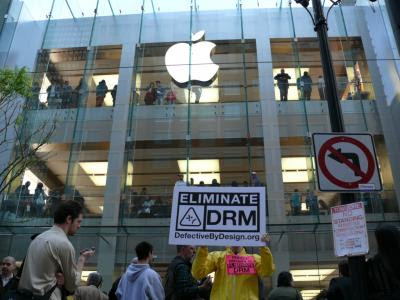***
| Image Source: Law.com |
Rather than wait to be sued — and apparently without a general counsel in place — Tesla filed a complaint for declaratory judgment after receiving a demand letter from Los Angeles patent holder pointSET.
In a five-page suit filed June 6 in the Northern District of California, a trio of in-house lawyers argue the technology that allows Tesla owners to remotely control the temperatures of their cars doesn't infringe pointSET's patent directly or indirectly, "either literally or under the doctrine of equivalents."
It's an aggressive response to pointSET's letter, sent April 30, that proposes a licensing agreement. Invoking the jargon of a discount retailer, Global IP Law Group associate Nicholas Dudziak wrote, "For a limited time, pointSET is offering a one-time, fully-paid licensing flat fee of $500,000." The letter went on to note that because management wishes to complete licensing arrangements quickly — the passing of pointSET's president and one of its inventors, Jerry Iggulden, has prompted a review of the portfolio — it is offering lower fees for timely agreements.
According to a recent analysis by Mark Lemley, director of Stanford Law School's Program in Law, Science and Technology, declaratory judgment actions aren't totally uncommon, as they represent about 7 to 8 percent of all patent suits. But, he said in an email, "Relying on in-house counsel is a lot less common, and a much riskier strategy."
Tesla has not announced the appointment of a GC since Eric Whitaker, now general counsel at SanDisk Corp., left in November 2012. He had been the third GC in as many years when he was named in 2010.
This tangle with pointSET would not be the first time that Tesla has navigated significant hurdles without a general counsel: Following the December 2009 resignation of Jonathan Sobel, a former Yahoo GC who had spent only a few months at Tesla, the company completed its initial public offering before appointing Whitaker.
For this suit, Tesla is relying on a team that includes associate general counsel Jonathan Butler and Steven Cooper, as well as patent counsel Richard Soderberg.
Spokeswoman Alexis Georgeson said no one from the company could comment on the pending litigation.
Tesla's patent strategy has historically focused on building up its patent portfolio. Tesla noted in its spring 2012 investor presentation that it had been awarded more than 50 patents to date and had more than 230 applications pending.
A search of court records indicates this is the company's only IP litigation. Georgeson did not respond to a request to confirm that.
David Berten, partner and founder of Global IP Law Group, said that when he spoke via telephone to the team from Tesla this week, they declined to share their theory of noninfringement.
"Hey, if you've got a good noninfringement argument, we'll withdraw the letter," Berten said in an interview. "Our positions on this are pretty transparent. It's a little bit of a head-scratcher why Tesla decided to do this."
The parties are scheduled to have an initial case management conference before U.S. Magistrate Judge Nathanael Cousins in San Francisco in September.
More pertinent business litigation news can be accessed at this Twitter page for Evan Granowitz.

.jpg)
